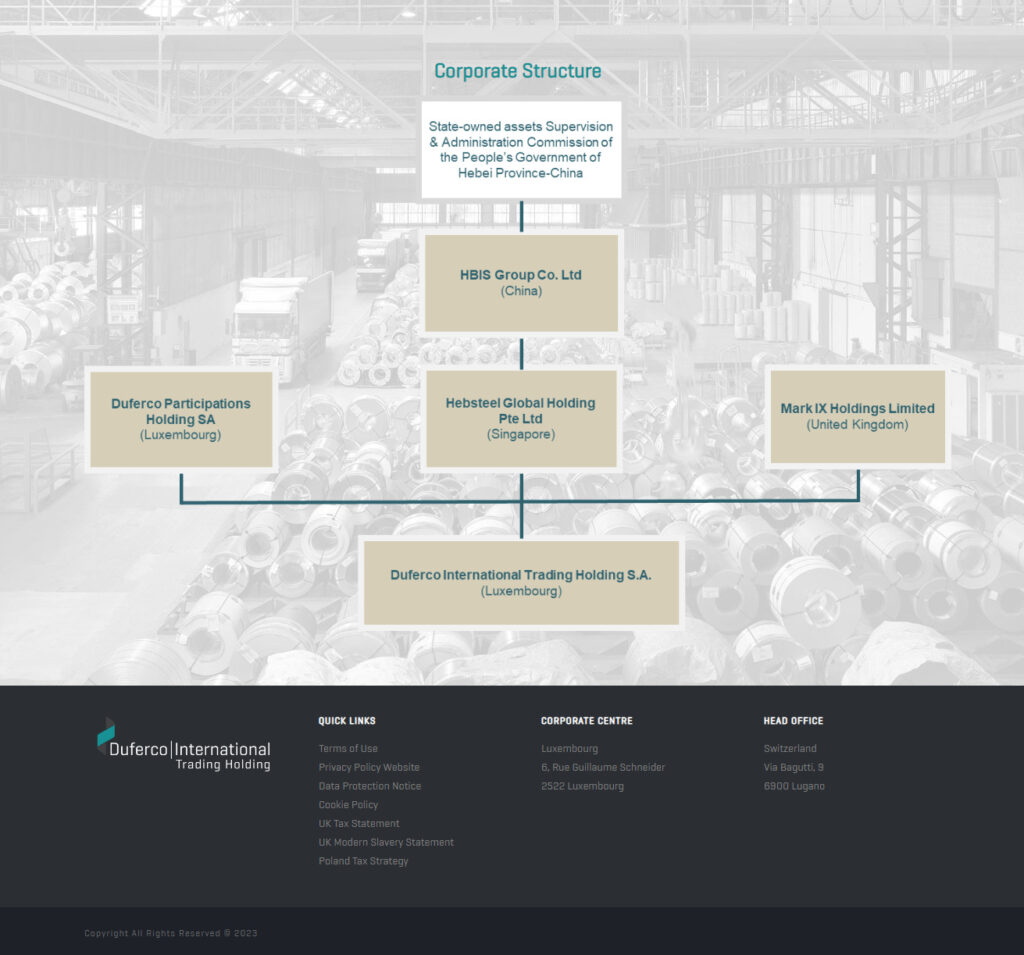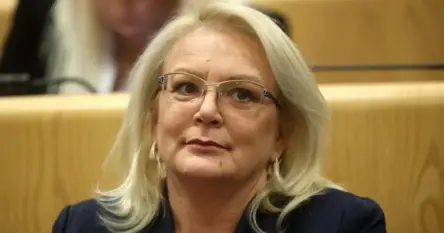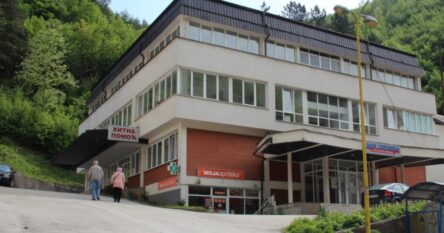tacno.net
Worldly, yet not ours: Aluminij Industries Mostar

“In fact, Duferco split into two parts. The trading division, known as DITH, was bought by the Chinese, specifically Hesteel. The other part of Duferco, involved in various sectors including production, gas trading, and equipment, remained in Italian hands. The Italian Duferco still holds a minority stake in DITH.”
With the help of the HDZ-BIH, utilizing the infrastructure of the state-owned company Aluminij Mostar, Israeli businessman Amir Gross Kabiri managed to create a company with a turnover of over one billion KM in just over three years of operation. Along the path to business success, he received support from Chinese strategic partners and the indispensable Swiss conglomerate Glencore. This tremendous growth of Aluminij Industries has also been proportionally reflected in the international support for Dragan Čović.
Written by: Predrag Blagovčanin/Tacno.net
In July 2019, the Elektroprivreda Hrvatske zajednice Herceg Bosne (Electricity Company of the Croatian Community of Herzeg-Bosnia) ceased the supply of electricity to the Aluminij Mostar aluminium plant, resulting in the shutdown of production in this company, which is majority-owned by the Federation of Bosnia and Herzegovina.
The inability to continue production led to massive protests by Aluminij workers in front of the headquarters of the HDZ-BIH (Croatian Democratic Union of Bosnia and Herzegovina), directly targeting the party’s president, Dragan Čović, as the most responsible for the downfall of this industrial giant in Herzegovina.
Simultaneously with the protests, former coalition partners of the HDZ engaged in negotiations with interested parties for the takeover of Aluminij d.d. Mostar.
As a result, the then-federal government led by Fadil Novalić from the SDA party and the relevant minister Nermin Džindić eventually accepted the offer from the Israeli group M.T. Abraham and Chinese strategic partners, following negotiations with Swiss Glencore and the Dubai-based company WAQT Trade, to take over the aluminium industry in this entity of Bosnia and Herzegovina.
For a symbolic monthly rent of 30,000 KM, the company M.T. Abraham will receive the complete energy, technical, and technological infrastructure of Aluminij d.d. Mostar, as well as the right to use the company’s brand, which has been highly positioned in this industry for decades.
Additionally, the contract allows for the registration of a lien on the property, the introduction of partners, the possibility of purchasing a portion or the entire factory with the exclusive right of first refusal, as well as the construction of energy facilities.
This contract is the result of a series of meetings in which, according to information from the Federal Ministry of Energy and Mining, it is unclear who attended.
Today, nearly four years after the shutdown of operations at Aluminij d.d., Israeli businessman Amir Gross Kabiri, the public face of Aluminij Industries d.o.o. Mostar is positioned as the key generator of political, economic, and cultural “life” in which the HDZ-BIH fully participates.
Despite the lack of relevant experience in this industry, but with strong connections through real estate ventures and involvement in the context of cultural diplomacy in China and Russia, Amir Kabiri is at the helm of a company that, according to available data, accumulates over one billion KM in revenue, with a profit of over 55 million KM for the year 2022.
The reasons for these figures can be found in the business relationships with the Swiss conglomerate Glencore and the fact that this company has signed a contract with the largest Russian and other global aluminium producers, RUSAL, for the delivery of 6.9 million tons of aluminium until 2024.
In addition to Glencore, whose business with Aluminij Industries has been ongoing since the contract with Aluminij d.d. Mostar, strategic partners such as the MT Abraham Group, Chinese state-owned company China Machinery Engineering Corporation (CMEC), and China Non-Ferrous Metal Industry’s Foreign Engineering & Construction (NFC) have extensive experience in the aluminium and energy industries.
In the realm of silk and velvet
According to Reuters, the Chinese company “NFC” has closely collaborated with the Iranian missile program in the process of creating aluminium powder, a crucial component of rocket propellant. Representatives of NFC emphasized in their statement to Reuters that the company’s operations in Iran are solely related to civilian use. NFC has been present in Iran since 2005, participating in the technical modification project of an alumina factory in the city of Jajarm.
Another strategic partner, CMEC, a part of the M.T. Abraham Group, has long been active in Serbia and Bosnia and Herzegovina through projects involving the construction and renovation of energy facilities.
It is worth noting that last year, the Tačno.net portal analyzed the cooperation between Chinese companies and the M.T. Abraham Group in Bosnia and Herzegovina in the context of decades-long political conflicts and tensions in the relations between Israel and the Islamic Republic of Iran.
Former Israeli Ambassador Noah Gal Gendler, in a statement to Tačno.net, denied the existence of a contract between the M.T. Abraham Group and NFC, stating that it was “historical information that has not been relevant for some time.” Shortly after our communication, the official website of Aluminij Industries removed NFC from its list of strategic partners.
Later actions by Ambassador Noah Gal Gendler, such as direct involvement in the internal political affairs of Bosnia and Herzegovina through a publicly available memorandum advocating for the electoral reform supported by the HDZ-BIH, resulted in a reprimand from the Prime Minister and Minister of Foreign Affairs of Israel, as well as his withdrawal from the ambassadorial position.
In August 2022, Galit Peleg replaced Gendler as the non-resident ambassador, and a few months later, the new ambassador ceremoniously opened the International Economic Fair in Mostar, organized in partnership with Israel.
The highlight of this year’s economic fair was the announcement that Aluminij Industries had signed a contract with Glencore and Duferco-DITH worth a total of 250 million KM for the construction of a 60 MW solar power plant and a recycled aluminium factory for the automotive industry.
This marked the culmination of the interest shown by Duferco International Trading Holding S.A. (DITH) in strengthening its presence in the aluminium trading sector, utilizing renewable energy in its production processes.
Duferco, one of the leading steel trading companies, was founded in the 1980s by Italian entrepreneur Bruno Bolfo in Switzerland. With its operational headquarters in Lugano and financial structure in Luxembourg, Duferco became one of the key players in the steel trading industry by the early 2000s.
According to journalist Federico Franchini from swissinfo.ch, who covers Duferco’s business activities, after the collapse of the USSR, the company positioned itself in the Russian and Ukrainian markets and entered lucrative deals with leading iron oligarchs. However, Franchini points out that Bruno Bolfo’s business interests shifted towards China in 2014.
“In fact, Duferco split into two parts. The trading division, known as DITH, was bought by the Chinese, specifically Hesteel. The other part of Duferco, involved in various sectors including production, gas trading, and equipment, remained in Italian hands. The Italian Duferco still holds a minority stake in DITH.”











